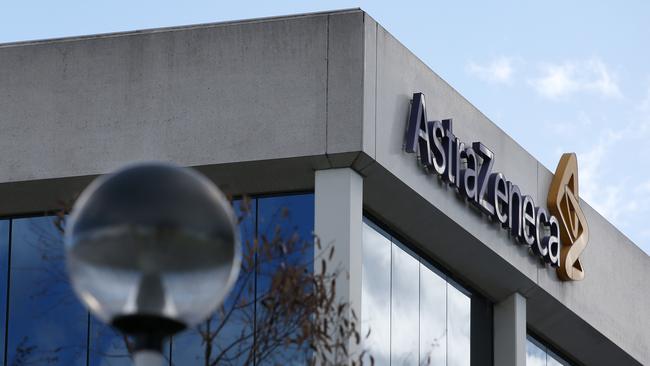Coronavirus: Oxford vaccine setback ‘no cause for panic’
The adverse reaction by one of the Oxford vaccine trial participants is revealed.

The suspension of human trials for the promising Oxford University vaccine for COVID-19 optioned by the Australian government could delay its arrival by months, in a blow to hopes that the rollout could start in the New Year.
Scientists in the UK are scrambling to understand whether the serious “adverse reaction” experienced by one of the nearly 20,000 test subjects so far enrolled in the phase-3 study was due to side-effects of the experimental drug.
The shockwaves washed through the international effort to produce a fast-tracked antidote to the coronavirus, with the Oxford University candidate vaccine being ranked on the top rung of the 160 different immunisers being developed globally.
Scott Morrison announced this week a $1.7bn production and supply deal for Australian drugmaker CSL to deliver more than 80 million doses of the Oxford University/AstraZeneca vaccine and another being developed by researchers at the University of Queensland with CSL help.
But pharma company AstraZeneca announced on Wednesday that the phase 2-3 proving trial in the UK, US, Brazil, India and South Africa had been halted after one of the participants, a British woman, came down with an “unexplained illness”.
The New York Times reported she had contracted transverse myelitis, an inflammatory syndrome that affects the spinal cord and is often sparked by viral infections, resulting in loss of function to her hands and feet.
It was too early to say whether the woman had received the candidate drug or the control agent, which is believed to be the vaccine for meningitis.
As shares in the vaccine company tumbled, UK health minister Matt Hancock tried to avert panic. “It is obviously a challenge to this particular vaccine trial,” he told Sky News. “It’s not actually the first time that it’s happened to the Oxford vaccine and it’s a standard process in clinical trials whenever they find something that they need to investigate.”
Asked whether it would set back attempts to find a COVID vaccine, he said: “Not necessarily; it depends on what they find when they do the investigation.”
But only the day before Mr Hancock was bullish on London radio. “We’re ready to roll out,” he said, should approval come through, with 30 million doses already being manufactured.
In Melbourne, CSL chief scientific officer Andrew Nash said the pausing of the phase-3 trial — ultimately involving 50,000 subjects over 12 months to prove the Oxford vaccine was safe and effective — showed that all due care was being taken.
“It’s exactly how trials are designed to work and it’s not uncommon,” he said. “All clinical trials have built-in checks and balances to ensure robust data is developed to show whether a medicine or vaccine is safe and effective in the majority of people.
“The researchers will now investigate whether this adverse event was caused by something other than the trial vaccine … or whether it was a reaction to the vaccine.”
The Oxford University vaccine, known as AZD1222, is the product of cutting-edge technology that relies on a modified chimpanzee adenovirus to deliver coronavirus genes into human cells, provoking a powerful immune response.
But adenoviruses are also known to trigger their own immune responses, compounding the task of investigators to uncover what was behind the woman’s adverse reaction.



To join the conversation, please log in. Don't have an account? Register
Join the conversation, you are commenting as Logout